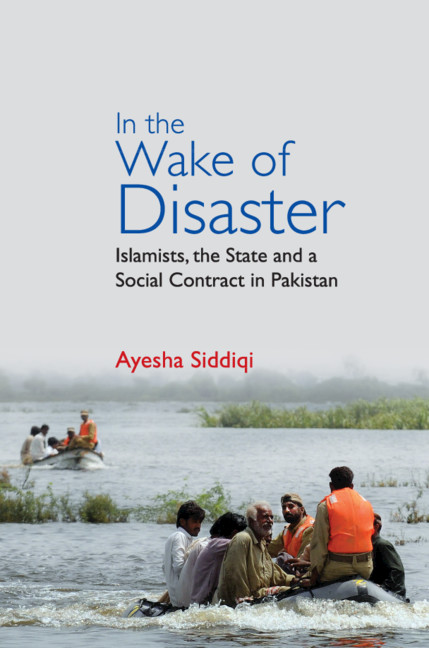The Islamic Welfare State
The Islamic Welfare State explains the relationship between government legitimacy, everyday security, and lived Islam in Pakistan—a major Muslim-majority country. Its humanitarian spirit makes Islam a compelling, community-strengthening faith that motivates people to provide essential services to the needy, to foster moral sentiments that build social solidarity, and to thereby challenge the legitimacy of government with its focus on 'protecting Islam' and 'national security' rather than enhancing the lives of ordinary people. The book surveys four kinds of Islamic charities—traditional, professional, partisan, and state. The focus is on ground realities, on the activities of welfare workers and beneficiaries, mostly patients and students from low-income families. The attention to the different political sentiments that different kinds of charity foster allows us to better understand politics and political change in Pakistan and across the Muslim world.
- methodologically interdisciplinary – draws on methods from anthropology, development studies, political science, religious studies, sociology, and theology
- conceptually innovative – demonstrates that charity in Muslim societies occupies a third sector, neither public and thus mandatory nor private and thus voluntary, but both private and obligatory
- politically insightful – reveals why governments in Pakistan, one of the world's most important Muslim-majority countries, struggle with providing public goods and thus with maintaining legitimacy
Reviews & endorsements
‘Candland takes us on a transformative journey, weaving together heartfelt stories, deep research, and political understanding.’ Noryn Ali, former Secretary, Baithak Schools Network
‘Candland’s goodwill and sincerity gave him access to charitable activities across Pakistan, allowing him to see humanitarianism in practice.’ Qibla Ayaz, Chairman, Council of Islamic Ideology, Islamic Republic of Pakistan
‘A groundbreaking, thorough case study of Pakistan’s charitable work sector.’ Justin Christensen, Kirkus Reviews
Product details
July 2024Hardback
9781009268431
320 pages
235 × 160 × 27 mm
0.685kg
Available
Table of Contents
- List of Illustrations
- Translation and Transliteration
- Glossary
- Preface
- Acknowledgements
- Section I. Introduction
- 1. Islam and the Social Welfare Ideal
- Section II. Piety and Public Goods
- 2. The Good of Government
- 3. Social Welfare in a Muslim Society
- Section III. Pakistan
- 4. Muslim Identities and Parties
- 5. Everyday Public Security and Insecurity
- Section IV. Charities
- 6. Methods of Discovery
- 7. Traditional Islamic Charities
- 8. Professional Islamic Charities
- 9. Partisan Islamic Charities
- 10. State Islamic Charities
- Section V. Religion, State, and Public Goods
- 11. Religious Provision of Public Goods
- 12. Sentiments of the 'Islamic Welfare State
- Bibliography
- Index.








